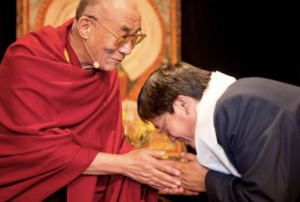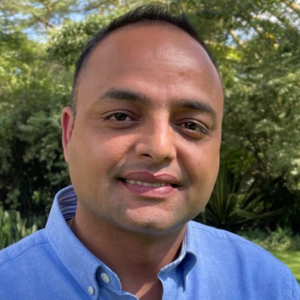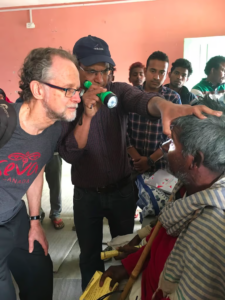Video posted March 25, 2025 by Gavi, the Vaccine Alliance
Gavi, the Vaccine Alliance, recently showcased the remarkable dedication of healthcare workers in one of the world’s most challenging terrains. Their documentary “Health Heroes of the Himalayas” highlights the critical work being done in Mustang, Nepal, where devoted health workers navigate extreme conditions to ensure children receive life-saving vaccines.
About Gavi, the Vaccine Alliance
Founded in 2000, Gavi helps vaccinate more than half the world’s children against deadly and debilitating infectious diseases. The organization has helped vaccinate over 1.1 billion children in 78 lower-income countries, preventing more than 18.8 million future deaths. Working through a powerful partnership model that includes the World Health Organization, UNICEF, the World Bank, and the Gates Foundation, Gavi negotiates affordable vaccine prices for the poorest countries while removing commercial risks that previously kept manufacturers from serving these regions.
Their impact extends beyond immediate health benefits: for every US$1 spent on immunization in Gavi-supported countries, US$21 are saved in healthcare costs, lost wages, and lost productivity. When considering the broader societal value of lives saved and improved health, this return increases to US$54 per US$1 invested.
Now, let’s hear the stories from Mustang, Nepal, where Gavi’s mission meets some of the world’s most challenging terrain.
Mustang, Nepal: Facing Climate Change and Healthcare Challenges

In Mustang, the terrain is complex and the population is sparse. Health workers face numerous challenges, including the inability to stay in high-altitude areas for extended periods.
“Our health workers go to every home in our municipality,” explains a local official. “They bring vaccines and travel through all situations to vaccinate the children.”
The region faces pressing concerns: “It’s time to think about climate change. It’s time to think about children. It’s time to think differently about health workers.”
A Local Perspective
“My name is Chikme Gurung. I was born here. My grandmother, my father, my mother—everyone has lived here for generations,” shares a resident. “Mustang and every Himalayan part of Nepal holds Tibetan cultures. Though we have Nepali citizenship, we depend on Tibetan cultures.”
Chikme explains how climate change is affecting the region: “We can see many things changing in Mustang regarding the climate. Everything is becoming warmer and warmer. These days, we are not cultivating even a single field for wheat or barley, which Mustang has grown for generations. We have abandoned traditional farming and now only cultivate some trees like apple trees.”
The demographic changes are equally concerning: “It’s very hard. In this village, 95% of people my age, my childhood friends, they are abroad. In the past 10 years, not a single person has come back.”
Health Challenges in a Changing Climate

A healthcare professional explains: “In the high mountain region, there is a clear association between climate change and the expansion of vector-borne diseases like dengue. The transmitter of dengue is mosquitoes. Mustang was once a cold place, but nowadays, because of climate change and temperature increases, mosquitoes are moving upward. Our neighboring municipality has found dengue cases, and mosquitoes are now found here.”
“Since we cannot provide vaccines against climate change itself, we need investment for the prevention and control of these climate-sensitive diseases. One option could be the vaccine against dengue fever. There should be free distribution of vaccines to poor countries that are least responsible for causing climate change.”
Dedicated Healthcare Workers
“I’m grateful for my people and my health staff,” says a local health official. “We are thankful for our work. We will vaccinate children—it’s our responsibility. We go to every home in our municipality. During monsoon season, we face floods. Though it’s summer now, we also face strong winds. In winter, we work in temperatures of minus 20 to minus 30 degrees. Our services are needed in every situation.”
The commitment of these healthcare workers represents hope for the community as they navigate the complex challenges of climate change in this remote Himalayan region—a powerful example of Gavi’s mission in action, bringing life-saving vaccines to the world’s most vulnerable children, no matter how difficult the journey.
Related Articles

Healing Nepal’s Hidden Scars: The Making of a Surgical Revolution
The Nepal Cleft and Burn Center, pioneered by Dr. Shankar Man Rai, revolutionized reconstructive surgery in Nepal, providing free treatment to over 20,000 patients while building local medical expertise.

Nepal’s Strategic Shift: Saving Lives Through Pesticide Regulation
Dr. Rakesh Ghimire, a key figure in Nepal’s public health initiatives, spearheaded efforts to ban hazardous pesticides. His work with the country’s pesticide regulatory board has led to a significant reduction in suicide rates.

Visionary Humanitarian: Dr. Marty Spencer’s Journey to Restore Sight Worldwide
Dr. Marty Spencer, 2024 ASCRS Humanitarian Award recipient, has devoted more than 35 years to treating cataract blindness globally. His work with Seva Canada has transformed eye care access in developing countries, focusing on sustainable solutions.
